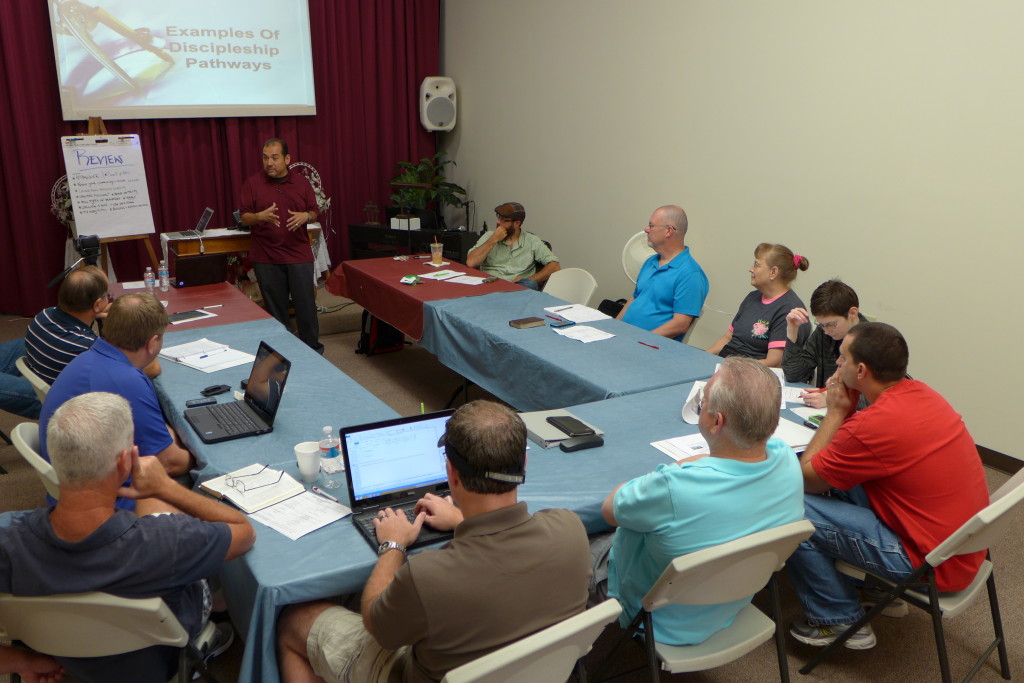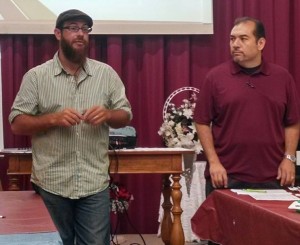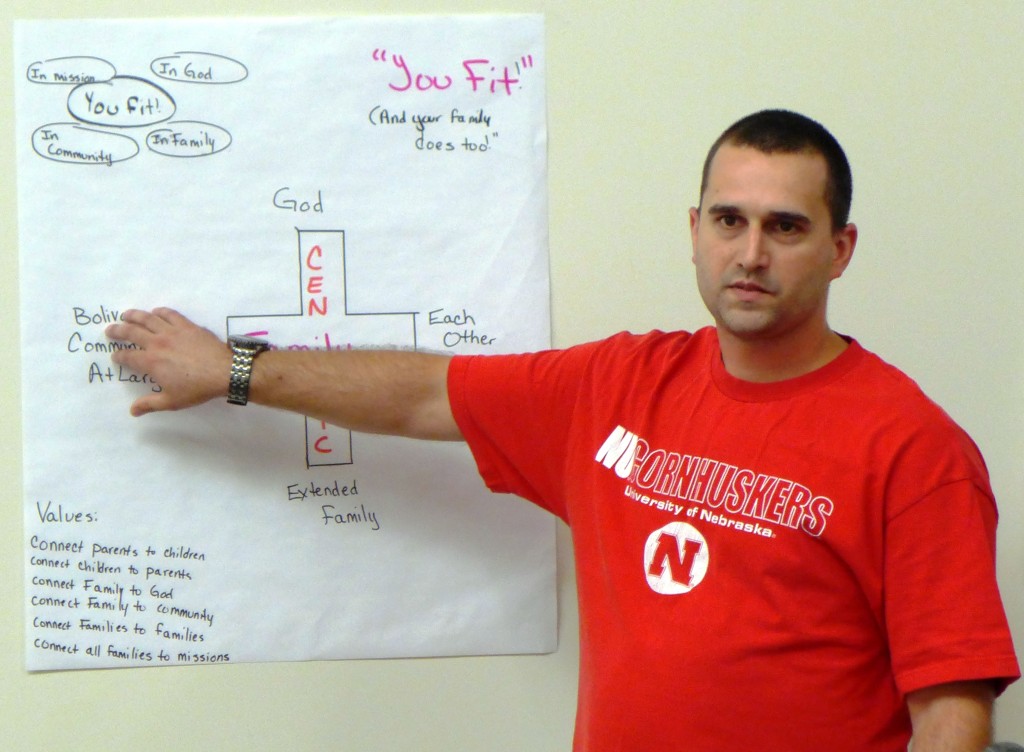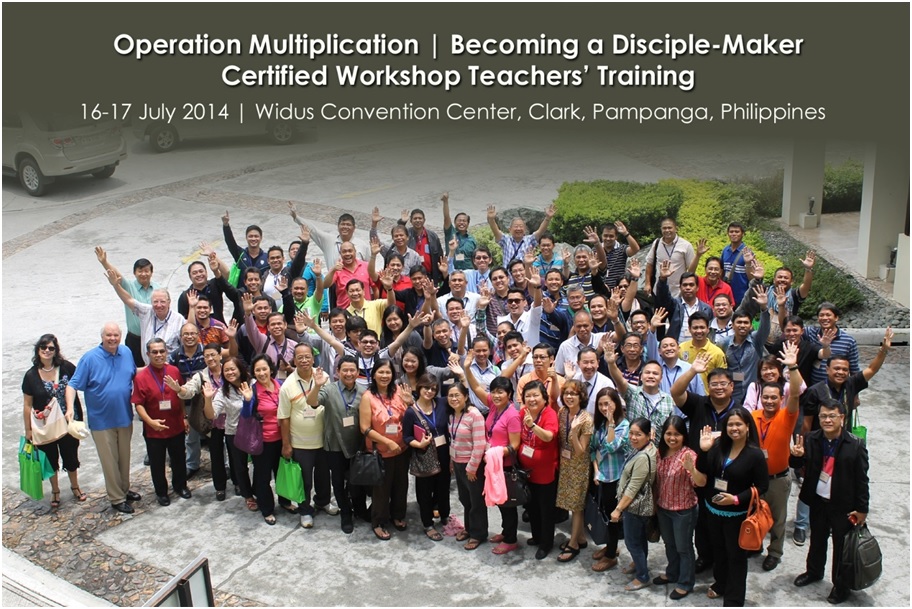Dear Brothers and Sisters is Christ,
 Have you noticed how it’s getting harder to determine if news reports in print, online, and via radio and TV are true? It seems that no matter how serious or sobering the topic, such reports are more about entertainment than accurate information. And with the way news is typically being reported, it’s increasingly difficult to determine what we actually need to know.
Have you noticed how it’s getting harder to determine if news reports in print, online, and via radio and TV are true? It seems that no matter how serious or sobering the topic, such reports are more about entertainment than accurate information. And with the way news is typically being reported, it’s increasingly difficult to determine what we actually need to know.
Let me illustrate with a pet peeve of mine—the conflicting information concerning global warming (often referred to as “climate change”). On the one hand, dramatic news reports tell of rapidly melting polar ice-caps that may result in whole countries being inundated. But other reports say that the amount of sea-ice in Antarctica has been increasing since satellite measurements began in 1979. [1] So it’s hard to know what to believe, given the complexity of this topic and the penchant the news media has for sensationalism.
Reporting news accurately is, of course, a great challenge. It requires facing the conflict between truth (accuracy) and trendiness (to achieve high ratings). We face a similar challenge in presenting the gospel. These days we hear a lot about the need to be relevant in order to connect with a younger demographic. Of course, we would be shortsighted not to use available media tools to communicate the gospel to younger audiences. But in doing so, we must not become bedazzled with gimmicks, sensationalism and special effects. To paraphrase Marshall McLuhan, we must not let “the medium become the message.”
Sadly this has happened in some Christian circles, where the focus has shifted from truth to trendiness. We guard against this shift when we remember that the ancient, biblical gospel is relevant in all places and times, within all cultures and generations. Certainly we need to communicate its timeless truths in ways that are clearly understood within different cultures, but let us not forget that the gospel’s fundamental, truthful relevance really cannot be improved upon.
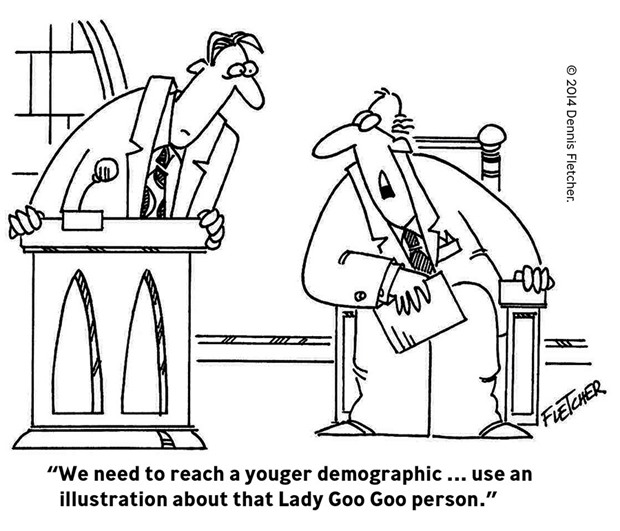
Today, culturally-bound distortions of the gospel abound: the health & wealth gospel, prediction-addiction schemes and concepts that make God out to be a cosmic sheriff or an on-demand vending machine. Other distortions include equating the gospel with a political party, a social cause, an ethic group, or a particular style of music. Such ideas load the gospel with “cultural baggage,” resulting in little or no gospel at all. We should remember Jesus’ warning: “This people honors me with their lips, but their heart is far from me; in vain do they worship me, teaching as doctrines the commandments of men” (Matthew 15:8-9, ESV).
Our challenge in presenting the gospel is to be both truthful and relevant. Martin Luther once said that if we are not preaching the gospel in ways that people understand, we are wasting our time. Theologian N.T. Wright emphasizes that “translating the New Testament is something every generation should be doing.” In the fourth Gospel, John writes that “The Word became human and made his home among us” (John 1:14, NLT). Here John used the Greek word logos, which we translate “Word,” but also can be translated “logic” or “reason.” The Greeks associated logos with divinity. William Barclay comments:
Jesus is the expression of the mind of God. It is as if John said to the Greeks: “For the last six centuries you have been speaking about the mind of God in the universe. If you want to see what the mind of God is, look at Jesus Christ. Here, full-displayed, is that mind of God about which you have always been thinking and talking. The logos has become flesh. The mind of God has become a person.”
Jesus, who is Truth personified, is always relevant. He spoke about and lived out the truth about a right relationship with God and the fruit produced by that relationship—right relationships with people. Such relationships are always relevant—important for all people everywhere in all times. In fact, “We live and move and have our being” within such relationships—first with God (including our right or wrong ideas about God) and then between people—parents and children, men and women, neighbor with neighbor.
As we strive to accurately present the gospel on the cluttered stage of today’s sensationalist media, let’s be careful not to let our efforts become “trendy” in ways that might distort the truth of the gospel. God, who in Christ reconciled the world to himself, calls us to live reconciled to him and to be his ambassadors of that reconciliation to the world. Let us be about that gospel mission.
Your brother in Christ,
Joseph Tkach
P.S. I often receive from Weekly Update readers links to entertaining videos. I like sharing the fun! Here’s one that shows a good way to recycle beer bottles: http://youtu.be/NkbZlautuUc.
____________
[1] Cryosphere Today, Polar Research Group, Department of Atmospheric Sciences, University of Illinois, Urbana-Champaign, http://arctic.atmos.uiuc.edu/cryosphere/.





